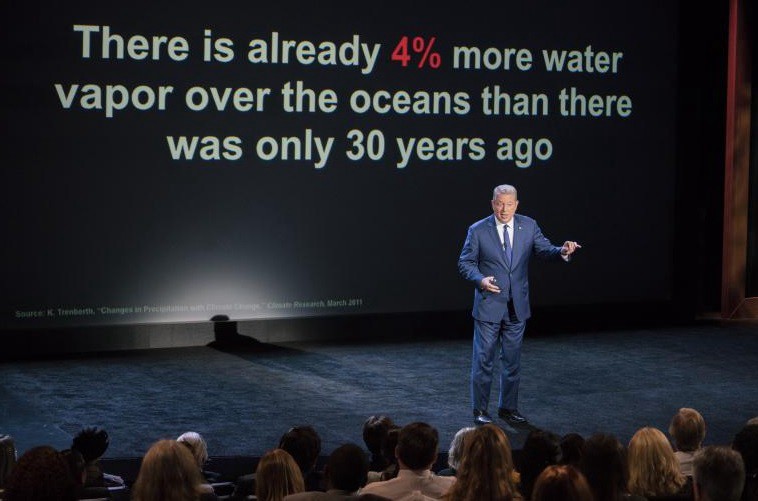Bonni Cohen is an award-winning producer and director. She co-directed “Audrie & Daisy,” which premiered in competition at the 2016 Sundance Film Festival and was picked up as a Netflix Original film. Her work as producer and director on “The Rape of Europa” earned her a PGA and WGA nomination and the project was short-listed for the Oscars. She co-directed “Inside Guantanamo,” which was nominated for an Emmy for Best Documentary in 2009.
“An Inconvenient Sequel: Truth to Power” is co-directed by Jon Shenk. The doc hits theaters today, July 28.
W&H: Describe the film for us in your own words.
BC: A decade after “An Inconvenient Truth” brought climate change into the heart of popular culture, this sequel looks at both the escalation of the crisis and how close we are to a real solution. The film follows Al Gore during the year 2016 as he relentlessly pursues his work to help solve the climate crisis.
W&H: What drew you to this story?
BC: We were approached by Diane Weyermann at Participant Media, who we have had a long and wonderful relationship with. Jon and I had made “The Island President” about former President of the Maldives, Mohamed Nasheed, and it was largely a climate change film with a single character at its center, [so that made us a good fit for this project].
W&H: What do you want people to think about when they are leaving the theater?
BC: I want people to feel that they have seen a dramatic and emotional story about an amazing man and his legacy of work. I want people to feel empowered — like change is possible and in their hands.
W&H: What was the biggest challenge in making the film?
BC: Climate change is depressing. There are so many climate crisis films out there that wag their finger at the viewer, scare and depress them with the apocalyptic nature of this problem.
Our challenge was to make sure to leave the audience with a bucket of hope, one filled with the solutions that are in place to solve this crisis and make sure the world is livable for our children.
W&H: How did you get your film funded? Share some insights into how you got the film made.
BC: We had the great fortune to work with Participant Media on this film. They were the producers of “An Inconvenient Truth” 10 years ago. They came to us with the budget raised and ready to go.
W&H: What’s the best and worst advice you’ve received?
BC: Best advice I have received: “Don’t confuse a good time with a good film.” My dear friend and mentor Jon Else has always said that you have to make sure to distinguish your film’s strength of narrative from the joy you may have had in making the film. This lesson is at the heart of disciplined filmmaking.
Worst advice: “Don’t become a documentary filmmaker if you want to be able to support a family!”
W&H: What advice do you have for other female directors?
BC: Find your voice. That distinction will make you an invaluable asset to your art.
W&H: Name your favorite woman-directed film and why.
BC: “Long Night’s Journey Into Day” by Deborah Hoffmann and Frances Reid. These two women created a beautiful and emotional story out of one of the darkest moments in human history. They found the humanity in it and brought it to the world. What a gift.
W&H: There have been significant conversations over the last couple of years about increasing the amount of opportunities for women directorsyet the numbers have not increased. Are you optimistic about the possibilities for change? Share any thoughts you might have on this topic.
BC: I am tremendously optimistic but that may be because I personally know so many talented, fearless women directors who are spending their lives doing this incredible work. We are seeing a golden age right now in documentary film and women are taking advantage. The numbers may not be there yet but I am hopeful we are trending to a better place.







